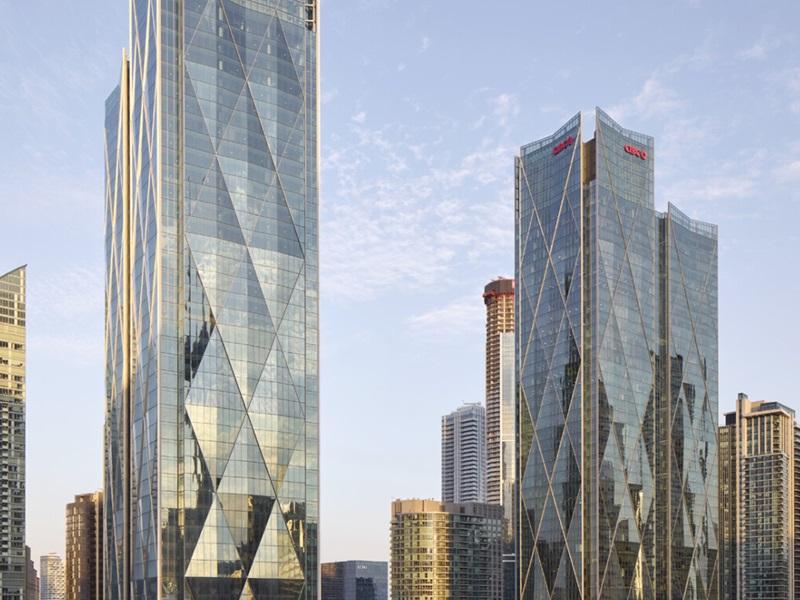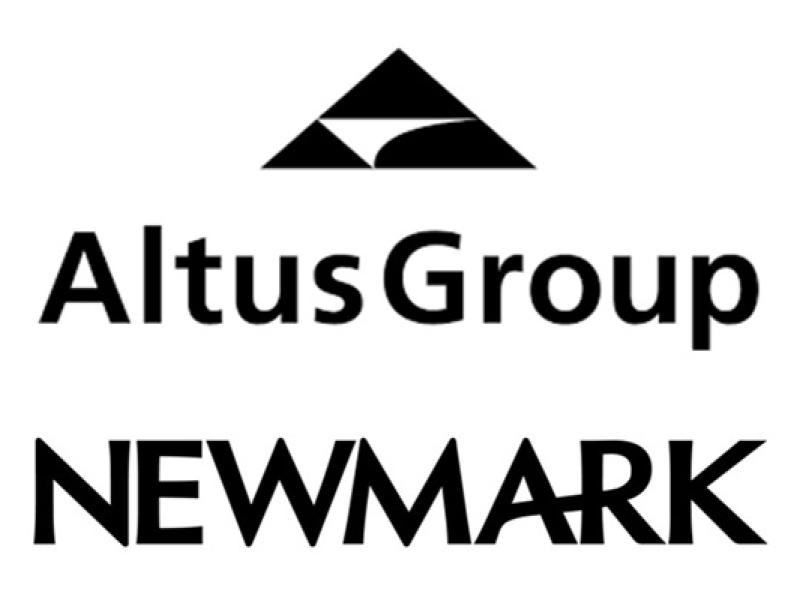
Canadian apartment rental rates are expected to rebound in 2021 and increase about three per cent, according to Rentals.ca and consultant Ben Myers. (Google Maps)
Apartment rental rates in Canada’s largest cities continue to trend downward due to the ongoing pandemic, but the 2021 investment outlook for the sector remains robust, according to Ben Myers of Toronto’s Bullpen Research and Consulting.
Offering insights into the Rentals.ca 2020 December Rent Report and its forecast for the next 12 months, Myers said to expect a continued rate slump for the first half of 2021, followed by a recovery. Rentals.ca projects Canadian residential rents to rise about three per cent overall next year, after taking a beating in 2020.
How deep the declines have been were updated in the report released this week. Across Canada, rents year-over-year in November for properties listed with Rentals.ca were down 9.1 per cent and 2.2 per cent from October.
Toronto led the way with a 20 per cent year-over-year decline. Neighbouring Mississauga was down 13 per cent and Vancouver was down 12.1 per cent. Among major cities, Montreal remained the Canadian bright spot, with average all-property rents up three per cent year-over-year.
“There’s a major decline in demand happening in the downtown cores for the reasons we’ve talked about before,” Myers told RENX.
That includes more former short-term rentals coming onto the market, fewer students and international in-migration, as well as the ongoing shutdowns affecting city cores where entertainment, food and employment are all heavily impacted.
Recovery predicted in second half of 2021
However, Myers doesn’t see the trend continuing much longer.
“I still expect rents to continue to trend down in the next four to six months. The vaccine for COVID is here, but it’s going to take a pretty long time before it starts to get distributed to the general public, and office towers and employers feel comfortable bringing their employees back downtown,” he explained.
“I think a lot of people are going to be trying to time the bottom of the market. If I had to guess, the absolute bottom might occur in February or March.”
The developers and property owners/managers Myers deals with agree. That’s why he doesn’t see much of a slowdown in development or pre-development activity.
Although some projects might be delayed, he expects significant activity in the purpose-built rental sector and moderate activity in the condo market.
“In terms of a developer starting construction in 2021, I don’t think they would push it back,” Myers said of apartment developers. “These projects are taking three years to complete; you are looking at 28 to 32 months to complete a lot of these buildings on average.
“Even some of the worst-case folks believe that by 2024 we’ll be back to normal.”
Big-city rent growth of seven to 10 per cent during 2018 and 2019 significantly exceeded most pro formas for projects which were already underway, so even this decline won’t be disastrous for builders with product coming online during the next 12 months.
“They realize there’s going to be bumps along they road, they think along with a lot of other people that the pandemic is short term, that people will want to be in cities were the opportunities are and they will return to cities and their developments will be highly desirable again.”
Condo investment market outlook

Ben Myers of Bullpen Research and Consulting.
Much attention has been paid to the higher-end condo market, where investors have been hit harder by the pandemic than many other residential sectors.
Particularly hard-hit are investors in smaller units, which are perceived as less desirable with lockdowns and work-from-home the order of the day in many locales.
However, Myers believes patience will be a virtue for owners of these units.
“I think the big bounce back will happen in centrally located condominium apartments. What you can call a class-A rental apartment – the brand new stuff that’s being completed – that’s at the top of the market.”
“Once there is a return of confidence, I think people will jump back into that type of product just because it’s the nicest rental product available, it’s close to employment, it typically has the nicest interiors, the best amenities. Those will come back and be highly desirable.”
While his outlook for new development in 2021 is tempered, Myers said location and product offering will be even more important to new launches.
“In terms of the condo market, there has been some softness but there have been some really successful launches that have occurred during the pandemic. It’s kind of a check-your-location kind of thing. ‘Do I have a unique offering, can I afford to bring in at a price that is very competitive in the market?’
“I don’t expect there to be as many condo launches in 2021 as there was in ’16, ’17, ’18 or ’19, but still expect a decent amount of product to come online.”
Rent controls stymie upward movement
Interestingly, at a time of lower rents one might expect residents in smaller apartments to consider moving up to larger units. Myers said in jurisdictions with rent controls, this might not be feasible even with the lower rents.
“Even though rents may have gone down in some of the submarkets, because of what they’re paying and rent controls, it doesn’t make sense to move because you wouldn’t be saving any money,” he explained.
However, for a first-time renter, a larger unit is now much more affordable.
“If the unit is now $400 or $500 cheaper than it was before then yes, they can afford to get a bigger unit at the same rent level if they’re making the same income.”
As for future development, Myers said there are many potential buyers seeking land and/or redevelopment sites. However, vendors have hit pause unless they can get pre-pandemic prices.
“The developers I talk to seem to be out looking for deals, 10 to 15 per cent off on the land they want to purchase,” Myers said. “A lot of these vendors, the people who own these properties have owned them for many, many years. They’ve seen prices continue to go up.
“They are in no rush to move these lands, so there’s really no incentive for them to offer a discount right now. They’d rather hold on and wait for the market to get hot again, which they fundamentally believe it will.”
Myers said he’s not expecting a rush of distress sales, although some smaller first-time, or inexperienced developers who bought high and don’t have the resources to hold the properties could be forced to sell.
However, he’s not seeing “blood in the water, yet.”







